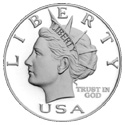"When you outlaw guns..."
"When you outlaw guns, only outlaws will have guns." This jingle is famous, but it is so true. Let's take the Virginia Tech massacre for example, while it is still fresh in our minds.
Why? Because the Virginia Tech killer, or any other violent criminal, does not care about obeying laws against carrying a gun, just like he doesn't care about obeying laws against violating the rights of victims (like murder). But if you ban guns, law-abiding people (by definition, people who DO obey laws) are helpless.
Now, I won't tell you what happened--unless you came under a rock for the past two weeks or more, you know what happened. But I'm going to view it from a different angle, to show you from a whole new light.
A year ago, a bill came before the Virginia General Assembly--HB 1572. The bill states if you have a permit allowing you to carry a weapon, you can carry it on campus. But this bill didn't get through the house committee. It died in the subcommittee stage, the first hurdle of many.
Larry Hincker, a Virginia Tech(!) spokesman, was pleased for the bill's defeat. "I'm sure the university community is appreciative of the General Assembly's actions because this will help parents, students, faculty, and visitors feel safe on our campus."
I agree with Hincker. But "feeling safe" and "being safe" are two separate things, especially coming from an anti-gun zealot.
A year before HB 1572, a Virginia Tech student was punished for bringing a handgun to class, although he already had a conceal carry permit. Some gun-owners (non-government) questioned Virginia Tech's authority, while Virginia police (government) backed the university.
Now, the main fault for the Virginia Tech massacre lies with the killer, but the Virginia's General Assembly is partly to blame.
And last week, Rep. Carolyn McCarthy proposed a bill--H.R. 297--that will send $1 billion (from taxpayers' wallets) to boost odious background checks, and thus restricting people's right to keep and bear arms.
But different branches of government (police, military, secret service, etc.) will still have their guns. "If you outlaw guns, only outlaws, and government (but I repeat myself) will have guns."
That's why I ignore bad laws which puts society, including me, in danger by disarming law-abiding people. I obey the Second Amendment. The Constitution (including the Second Amendment) is "the supreme Law of the Land", and the Supreme Court decision in Marbury v. Madison states (at the bottom), "[A] law repugnant to the constitution is void." If I can either ignore unconstitutional gun-laws, or I am vulnerable to violent criminals, I choose the former.
For example, take a look at the Trolley Square shooting in Utah earlier this year. Ken Hammond, an off-duty officer, after having a early Valentine's Day dinner with his wife, violated the shopping mall rules by carrying a handgun with him. That decision saved all but five people their lives, before the killer was fatally shot. In the killer's backpack, he had a 12-gauge shotgun, a .38-caliber revolver, and plenty of ammunition, enough to kill more people than Virginia Tech. What if Hammond had followed the law and left his gun at home?
Take a look at the Appalachian School of Law shooting in Grundy, VA; a hop, skip, and a jump from Virginia Tech. In 2002, a disgruntled former student opened fire in the school, killing three victims in the process, until two students ran to their vehicles, got a 9mm pistol and a .357 Magnum revolver, and subdued the killer. What if only one student had broken the law and carried his gun with him? Would the three fatalities still be alive?
What about the Luby's massacre in Killeen, TX? In 1991, Suzanna Hupp and her parents were having lunch at Luby's. She had left her handgun in her car to comply with Texas state law at that time which outlawed carrying a concealed weapon. When the killer crashed his truck into the cafeteria, Hupp instinctively reached for her weapon. She would have less than three feet between her and the killer--an easy shot. But the gun wasn't there; it was in the car. That fatal mistake cost her parents and up to 21 others their lives. Later, Hupp said if she would do it again, she would have violated the law and took the gun with her. I can go on and on (e.g., Pearl MS, Kennesaw GA, et al), but you get the picture.
Normally, I rag on Oklahoma's laws, but on gun laws, the Sooner State is better than most. The latest is when Oklahoma amended Title 21 O.S. Section 1289.25, nicknamed now the "Stand Your Ground" law. When reading Subsection I, and then Subsection D, it states that any person "who is not engaged in an unlawful activity" and who is at "any other place where he or she has the right to be" has no duty "to require any person using a pistol...to be licensed in any manner." This law complies with the Second Amendment. Look at the law for yourself! But, the law is meaningless if law-abiding Oklahomans won't exercise it.
But, the original and central purpose of the Second Amendment is to serve as a block against tyrannical government. As my last article said, the underlining principle of the Constitution is that the greatest threat to the liberty and prosperity of the American people lies not with the "communists" in the past, or "terrorists" now, but lies within our own government. But gun-control advocates will tell you is you don't need guns--you can trust the government.
The Founders endowed us with the Bill of Rights, including the Second Amendment. Again, all we have to do is to know the law and to use our rights. That is the only way to be both safe, and free.




